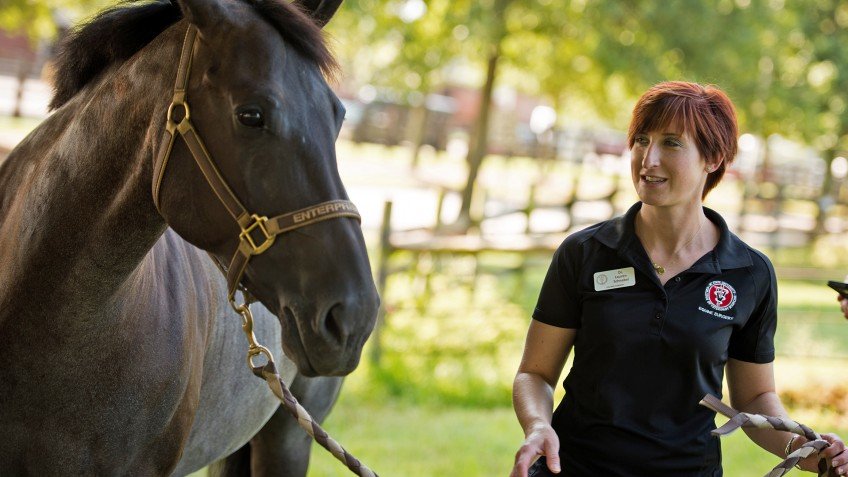Just like people, horses change as they age. Their energy levels, muscle tone, digestion, and mobility all begin to shift—sometimes slowly, sometimes more noticeably.
But with the right care and attention, senior horses can remain active, healthy, and happy well into their golden years.
Caring for an aging horse is not about trying to reverse time. It’s about recognizing what your horse needs today and adapting your care routine to support their health, comfort, and quality of life.
Let’s explore the key areas of senior horse care: nutrition, joint support, and managing age-related conditions.
When Is a Horse Considered “Senior”?
While there’s no exact age at which a horse becomes “old,” most are considered seniors by the time they reach 15 to 20 years. That said, some horses show signs of aging earlier, while others stay strong and sprightly well into their late 20s.
Common signs of aging include:
- Weight loss or muscle wasting
- Dental issues or difficulty chewing
- Joint stiffness or lameness
- Decreased stamina
- Longer recovery after exercise
- Changes in coat condition or shedding patterns
Even if your horse looks healthy, their internal systems—especially digestion and joints—may need more support as they age.
1. Nutrition for the Aging Horse
One of the biggest challenges with senior horses is maintaining healthy weight and body condition. As horses age, their ability to digest and absorb nutrients, especially protein and fiber, declines.
Key nutritional considerations:
High-Quality Forage:
Forage should always be the foundation of the diet. But for seniors with dental problems, long-stem hay can be hard to chew. Consider chopped hay, soaked hay pellets, or hay cubes.
Easily Digestible Feeds:
Senior feeds are specially formulated to be soft, palatable, and nutritionally balanced. Many include beet pulp, rice bran, or fat sources to help maintain weight without overloading the digestive system.
Increased Protein and Fat:
Older horses often need more high-quality protein to preserve muscle mass, and added fat can provide safe calories without risk of colic or laminitis.
Vitamins and Minerals:
Age can affect how well a horse absorbs certain nutrients. A well-balanced senior feed usually includes extra vitamin E, selenium, and antioxidants to support aging cells and immune function.
2. Joint Support and Mobility
As horses age, wear and tear on joints can lead to arthritis, stiffness, and reduced mobility. While it’s a natural part of aging, there are ways to keep joints healthier for longer and ease discomfort when it arises.
How to support aging joints:
Regular Movement:
Light, consistent exercise helps lubricate joints and maintain muscle tone. Turnout in a spacious pasture is ideal—standing in a stall all day can make stiffness worse.
Joint Supplements:
Popular joint-supporting ingredients include:
- Glucosamine
- Chondroitin sulfate
- MSM (methylsulfonylmethane)
- Hyaluronic acid
- Omega-3 fatty acids (from flaxseed or fish oil)
While results vary, many senior horses show noticeable improvement in comfort and range of motion after 4–6 weeks of supplement use.
Pain Management:
For more advanced cases, your vet may recommend anti-inflammatories like phenylbutazone (bute) or firocoxib. These medications should be used carefully and under supervision, especially in horses with metabolic or digestive sensitivities.
Hoof Care:
Proper hoof balance can greatly reduce joint stress. Keep up with regular farrier visits, and consider pads or special shoes if your horse needs extra support.
3. Managing Age-Related Health Conditions
Older horses are more prone to certain health issues, but early detection and proactive management can make all the difference.
Common conditions in senior horses:
Dental Disease:
Worn or missing teeth make it hard to chew, which affects nutrition and can lead to weight loss or choke. Senior horses should have a dental exam at least once a year—sometimes twice. Floating (filing sharp points) and adjusting feed texture can help immensely.
Cushing’s Disease (PPID):
A common endocrine disorder in aging horses, Cushing’s can cause long hair coats, excessive drinking/urinating, laminitis, and weight/muscle loss. Regular blood tests and medications like pergolide (Prascend) can manage symptoms effectively.
Insulin Resistance / Metabolic Syndrome:
Senior horses can become sensitive to sugar and starch. Feeding low-sugar, low-starch diets and keeping body weight in check is essential.
Weakened Immunity:
Older horses are more vulnerable to infections and slower to recover. Keep up with vaccinations, deworming, and routine health checks to avoid setbacks.
Vision and Hearing Changes:
Horses with reduced sight or hearing can become more anxious or reactive. Adjusting their environment—more lighting, calmer handling, consistent routines—helps them feel safe.
Comfort & Quality of Life
Aside from nutrition and medical care, don’t underestimate the importance of emotional well-being in your senior horse.
- Keep a predictable routine
- Offer social interaction with herd mates
- Ensure shelter from extreme weather
- Use soft, dry bedding for comfort
- Groom regularly to promote circulation and bond with your horse
Final Thoughts
Senior horses have given us their best years, and they deserve thoughtful, compassionate care in return. With proper nutrition, joint support, regular vet checks, and some extra TLC, your older horse can continue to enjoy life—whether that means light trail rides, teaching younger riders, or simply grazing peacefully in the sun.
Age is not a disease. With the right approach, it’s just another stage of the incredible journey we share with these remarkable animals.




